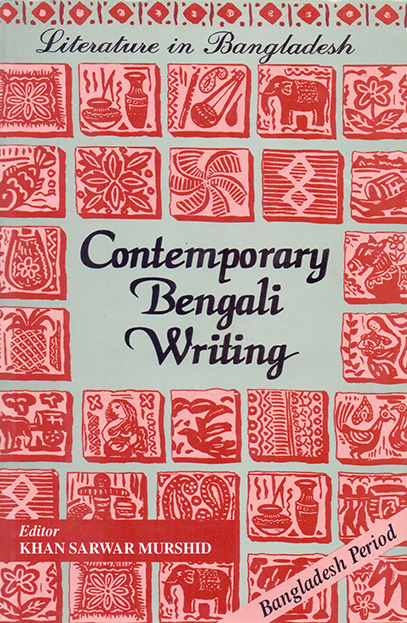
- Shop
- Language, Life & Literature
- Literature in Bangladesh: Contemporary Bengali Writing (Bangladesh Period)
Literature in Bangladesh: Contemporary Bengali Writing (Bangladesh Period)
https://uplbooks.com/shop/9789840513185-literature-in-bangladesh-contemporary-bengali-writing-bangladesh-period-2998 https://uplbooks.com/web/image/product.template/2998/image_1920?unique=56f7a2e
| Language: English |
Tags :
Book Info
This volume of essays is a critical survey of the literary scene in the late 1980's. It takes account of the profound changes in Bangladesh society and the world during the previous three decades, especially, the crucial experience of the Liberation War through which the people of this region attained statehood. Experiences and upheavals of this kind do affect the form and content of literature and influence creativity and the response to it. Indeed, three generations of writers, critics, and readers were witnesses to the working of successive colonial regimes and immoral authoritarian postcolonial rule. They had seen subversion of liberal-humanist institutions and values and they joined in a collaborative effort of investigation of the major literary forms and some of their outstanding practitioners. The findings are expectedly mixed: poetry has come of age, guilty, as it often is of being too contemporaneous, that is, dealing with surfaces rather than depths. Fiction too, compared with the situation of the late 50's, has made significant advances, in some cases. Drama, in response to the demands of a new society and a vibrant theatre, has produced some excellent work. The number of women writers with individuality is on the increase and several draw notice. The survey recognizes the peaks in poetry and fiction but does not neglect the lower reaches of the terrain. In fact, it articulates a large variety of themes and issues relevant to the appreciation of contemporary Bengali writing. Its value, as the introduction claims, in its honesty is an expression of the critical perceptions of a particular time. The practising writer, the scholar, and the student of South Asian literature and Bangladesh studies should find the book both a judicious review of and a dependable guide to the literature of the period.

Khan Sarwar Murshid
Khan Sarwar Murshid (1924-2012) is widely known in Bangladesh as an educationist, a scholar, an activist and for most of his life, a teacher at the Dhaka University English Department. He served as ambassador to Poland and as the Assistant Secretary-General to the Commonwealth Secretariat. Inspired by the Buddhir Mukti Andolon and literary greats such as Tagore, Shakespeare, Rilke, and Dante, his intellectual pursuits sharpened his humanist and philosophical outlook on life. Committed to ideals of right conduct and social order, he supported Bangabandhu Sheikh Mujibur Rahman’s Six Points Programme for autonomy for Bangladesh, and all his life championed democratic good governance. In this context, he founded Nagorik Udyog, served as Chairperson of Transparency International Bangladesh, and joined various

খান সারওয়ার মুর্শিদ
Khan Sarwar Murshid (1924-2012) is widely known in Bangladesh as an educationist, a scholar, an activist and for most of his life, a teacher at the Dhaka University English Department. He served as ambassador to Poland and as the Assistant Secretary-General to the Commonwealth Secretariat. Inspired by the Buddhir Mukti Andolon and literary greats such as Tagore, Shakespeare, Rilke, and Dante, his intellectual pursuits sharpened his humanist and philosophical outlook on life. Committed to ideals of right conduct and social order, he supported Bangabandhu Sheikh Mujibur Rahman’s Six Points Programme for autonomy for Bangladesh, and all his life championed democratic good governance. In this context, he founded Nagorik Udyog, served as Chairperson of Transparency International Bangladesh, and joined various


